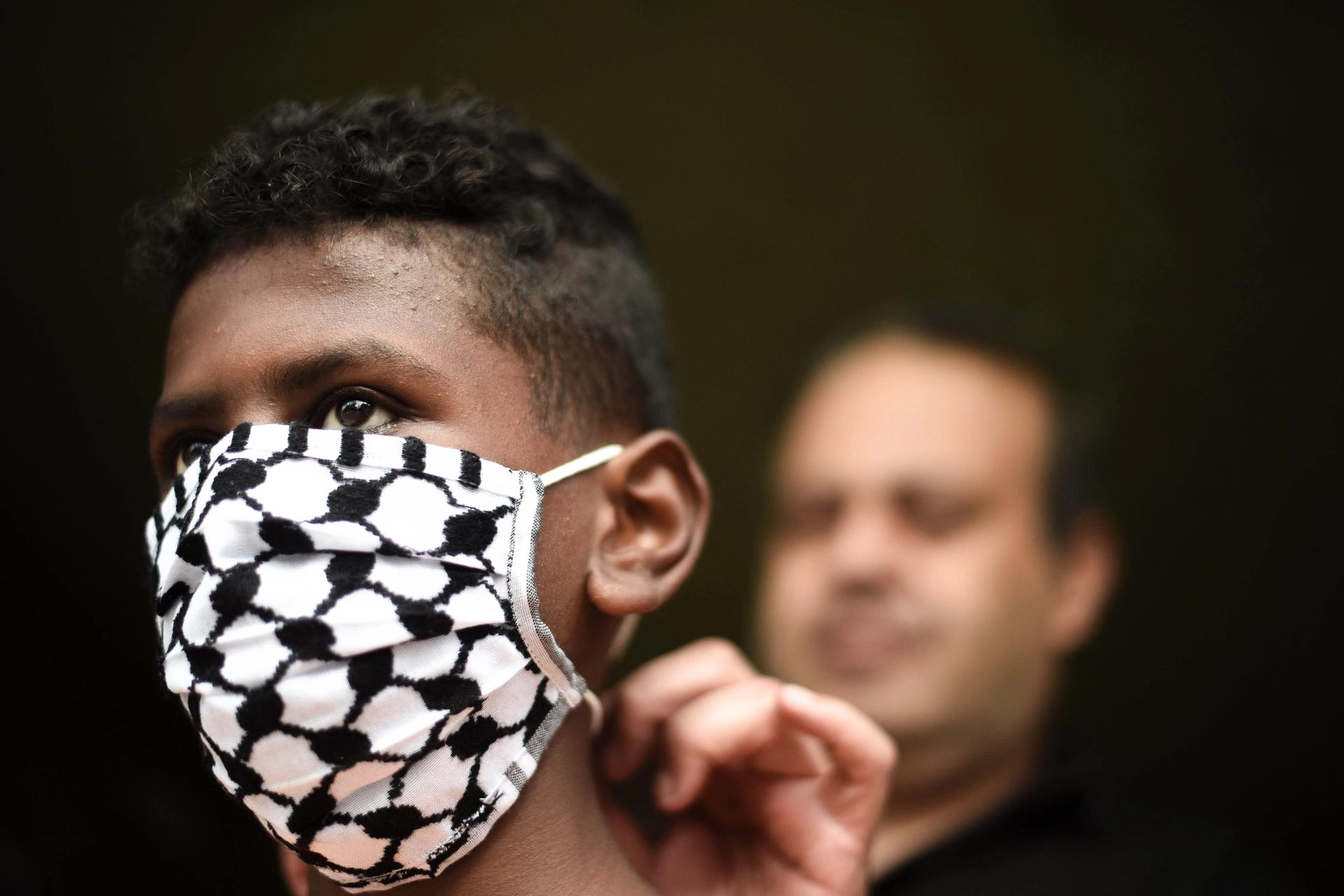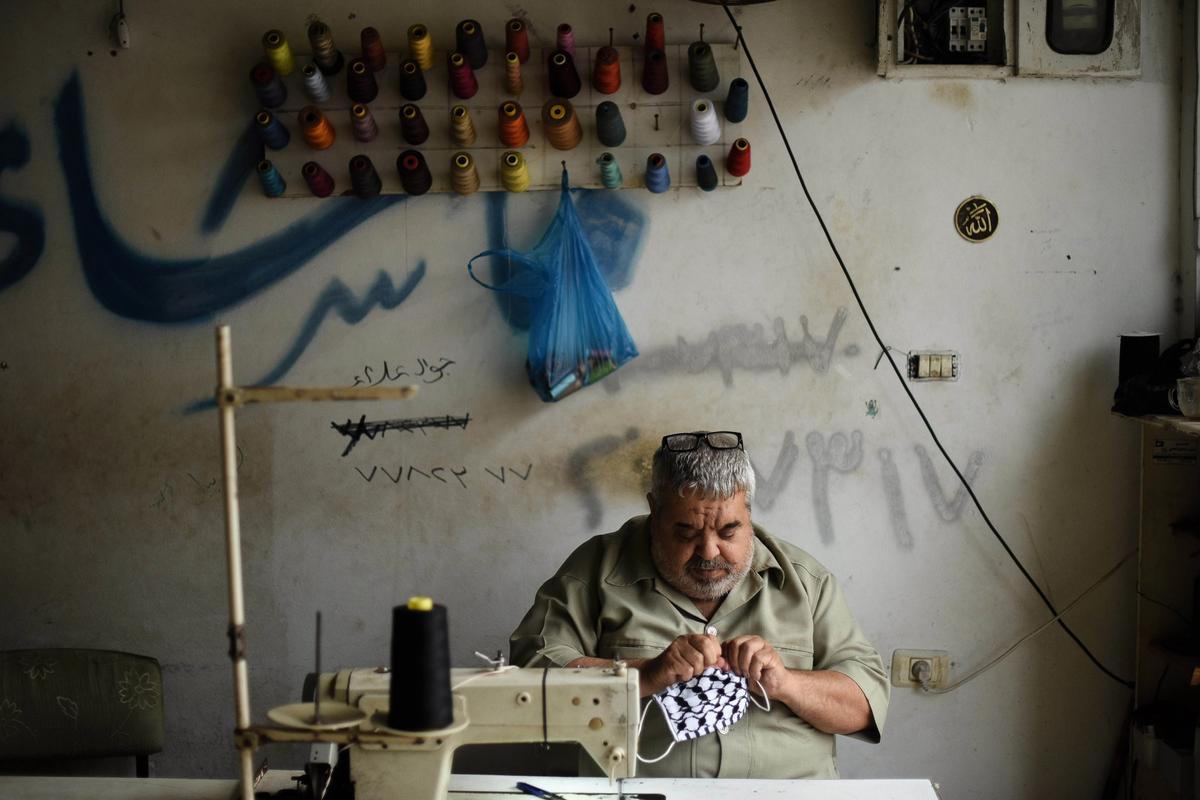Coronavirus (Covid-19) has revived a 2015 project initiated by Palestinian artist Mohammed Musallam that employs the face mask as both a conceptual and pragmatic piece of art.
When the Gazan artist first produced his mask incorporating the black-and-white design of the keffiyeh (traditional scarves), it was for use in Gazan hospitals under siege. The project, originally conceived in a workshop organised in Gaza City by the Belgian artist Annelyse Devet, whose organisation Disarming Design collaborates with Palestinian craftspeople and artists to produce contemporary objects, has taken on a new life.
While Musallam says that the mask was first created as a symbol of Palestinian identity and a “means of protection”, a limited edition of 150 masks will now be available through Disarming Design as a way of supporting traditional crafts in Gaza.
Produced in Gaza by local craftsman Abu Alaa Ghaben under Musallam’s supervision, they will be delivered via friends working for international aid agencies (as exporting anything past the Gazan border is almost impossible due to Israeli restrictions) to Belgium at the end of the month. All proceeds from the sales of the masks, which feature cotton lining on the inside and keffiyeh made in Hebron on the outside, will go to Ghaben and to cover manufacturing and transportation costs.

The face masks incorporate the traditional black-and-white keffiyeh design
The original concept of the masks made of keffiyeh—traditionally used for protection from sun, dust and sand—derived from the fact that “you have to keep yourself safe, protect your identity and keep your land”, Musallam says. Now the masks offer protection from Covid-19 as well as being a celebration of Palestinian culture.
Musallam, whose work often employs traditional objects, as in his 2012 work Palestinian Pearls—an installation of necklaces made from olives symbolising Palestinian identity through connection to the land—is now living in exile in Canada, where he received refugee status in 2018. His installation of olive leaves, homemade olive oil, barbed wire and passports, called The Great Illusion, was exhibited at the Mattress Factory in Pittsburgh in 2016.
Saddened that he cannot return to Gaza, for him, “this is a way of coming home again.”
The Covid-19 crisis, he says, which has curtailed travel for so many people, may offer insight into the Palestinian situation. “Now we are all like Gazans,” he says, “trapped in place.”
To order masks contact Disarming Design.


